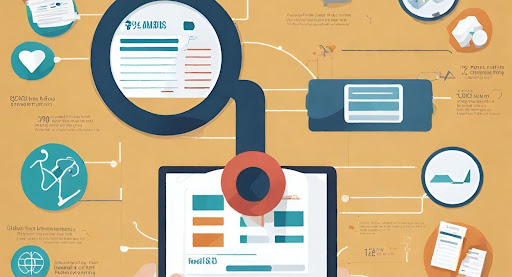Medicaid, a joint federal and state program, plays a crucial role in providing healthcare coverage to eligible individuals and families with low income. Understanding how to navigate Medicaid providers is essential for those seeking quality healthcare services. In this guide, we will explore what Medicaid is, how to qualify, and how to make the most of the available providers.
What is Medicaid?
Medicaid is a state and federally-funded program that offers health coverage to eligible low-income individuals and families. It covers a wide range of healthcare services, including hospital stays, doctor visits, prescription drugs, and more. Each state administers its Medicaid program, resulting in some variation in benefits and eligibility criteria.
Qualifying for Medicaid Providers :
Eligibility for Medicaid is primarily based on income and family size. The Affordable Care Act expanded Medicaid eligibility in many states, making it available to more low-income individuals. Additionally, certain categories, such as pregnant women, children, and individuals with disabilities, may qualify for Medicaid even if their income exceeds traditional limits.
Finding Medicaid Providers:

State Medicaid Website:
Visit your state’s official Medicaid website to access information about available providers, covered services, and eligibility requirements. Many states provide online tools to help you find Medicaid doctors, dentists, and other healthcare professionals.
Healthcare.gov:
The federal healthcare marketplace, Healthcare.gov, allows you to explore Medicaid options and enroll if you qualify. The website also provides resources to find Medicaid providers in your area.
Provider Directories:
Medicaid maintains directories of participating healthcare providers. You can access these directories on the state Medicaid website or request a printed copy. These directories list doctors, hospitals, pharmacies, and other healthcare facilities that accept Medicaid.
Community Health Centers:
Federally Qualified Health Centers (FQHCs) often serve as Medicaid providers. These centers offer comprehensive healthcare services on a sliding fee scale, making them accessible to individuals with low income.
Making the Most of Medicaid Providers:

Understand Covered Services:
Familiarize yourself with the services covered by Medicaid. This ensures you make the most of your benefits and receive necessary healthcare without unexpected costs.
Choose a Primary Care Provider (PCP):
Selecting a primary care provider is crucial for coordinated and preventive care. Your PCP can help manage your health and refer you to specialists when needed.
Check Provider Acceptance:
Before scheduling appointments, confirm that a healthcare provider accepts Medicaid. This helps avoid surprises and ensures you receive the full benefits of your coverage.
Keep Information Updated:
Notify your Medicaid office of any changes in income, address, or family size promptly. This ensures you maintain eligibility and receive the appropriate level of coverage.
Benefits of Medical Billing Services for Medicaid Providers

Medicaid providers play a crucial role in ensuring accessible healthcare for vulnerable populations. However, navigating the complex world of medical billing can be a daunting task. Enter medical billing services, a game-changer for Medicaid providers seeking to optimize their operations and focus on what matters most – patient care.
Enhanced Efficiency:
One of the primary advantages of utilizing medical billing services is the significant boost in efficiency. Professional billing services streamline the entire billing process, from claim submission to payment collection. This efficiency translates to quicker reimbursements, allowing providers to maintain a steady cash flow.
Reduced Billing Errors:
Medical billing is rife with complexities, and errors can result in delayed payments or even claim denials. Medical billing services are equipped with advanced technologies and skilled professionals who minimize the risk of errors. This reduction not only ensures timely payments but also mitigates the need for time-consuming corrections.
Compliance Assurance:

Medicaid billing is subject to a myriad of regulations and compliance standards. Staying abreast of these ever-evolving requirements can be challenging. Medical billing services specialize in compliance management, ensuring that providers adhere to all relevant rules. This not only minimizes the risk of audits but also fosters a sense of confidence in Medicaid providers.
Optimized Revenue Cycle:
Medical billing services are adept at managing the entire revenue cycle, from patient registration to final payment posting. By optimizing each stage of this cycle, providers can maximize their revenue potential. This comprehensive approach ensures that no revenue opportunities are overlooked, ultimately bolstering the financial health of Medicaid practices.
Faster Reimbursements:
Timely reimbursement is crucial for the sustainability of Medicaid providers. Medical billing services expedite the reimbursement process by submitting accurate claims promptly. This rapid turnaround time not only improves cash flow but also allows providers to allocate resources more efficiently.
Focus on Patient Care:
Outsourcing medical billing tasks enables healthcare providers to redirect their time and energy toward patient care. By alleviating the administrative burden associated with billing, medical professionals can concentrate on delivering quality healthcare services, enhancing patient satisfaction, and ultimately building a positive reputation.
Cost Savings:
Contrary to common misconceptions, outsourcing medical billing services can result in significant cost savings. Providers can avoid the expenses associated with hiring and training in-house billing staff, investing in technology, and managing billing-related overhead. This cost-effective solution allows Medicaid providers to allocate resources strategically, optimizing their budget for improved patient care.
Conclusion:
In conclusion, embracing medical billing services is a strategic move for Medicaid providers looking to thrive in a complex healthcare landscape. From enhanced efficiency and compliance assurance to optimized revenue cycles and cost savings, the benefits are numerous. By partnering with professional billing services, Medicaid providers can streamline their operations, reduce errors, and ultimately provide better care to the communities they serve.
Recent Comments